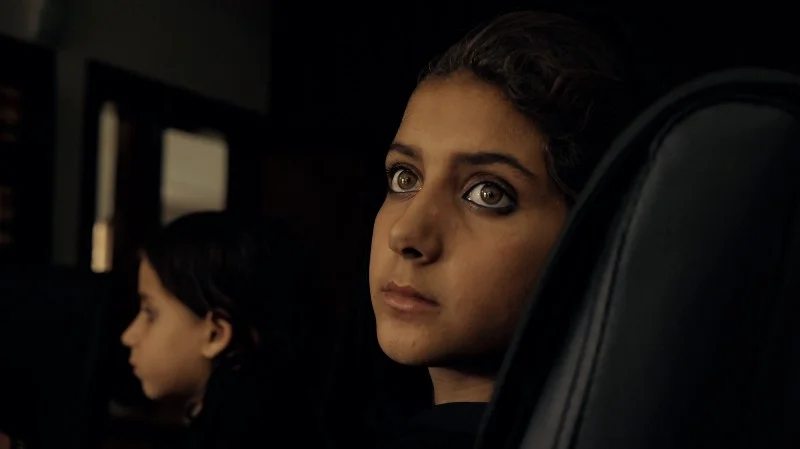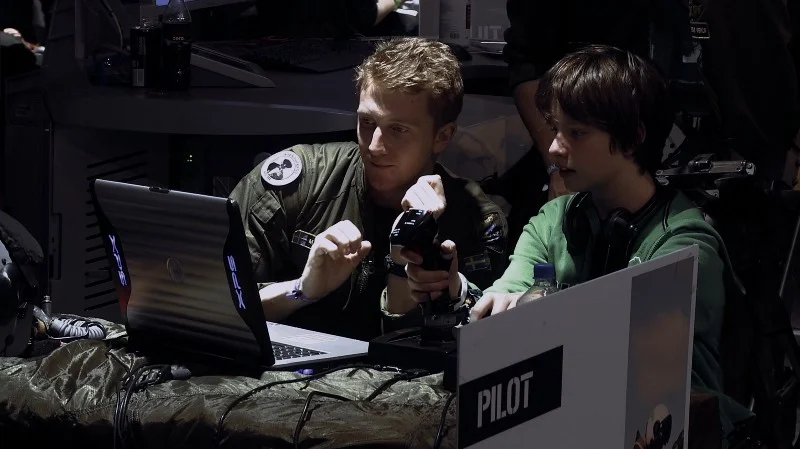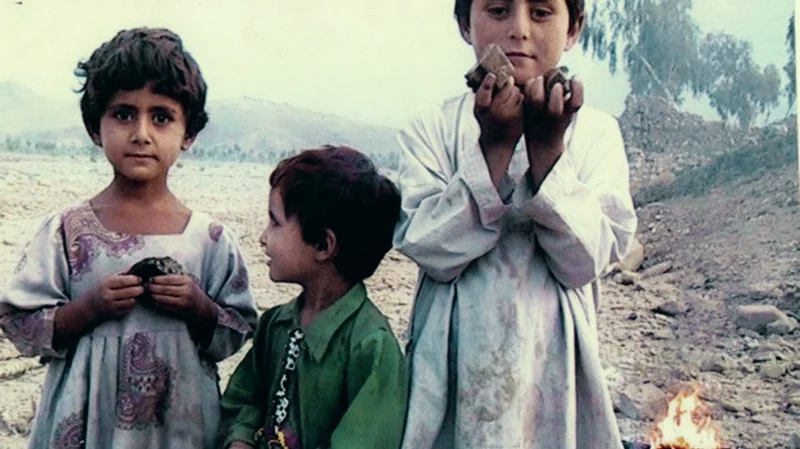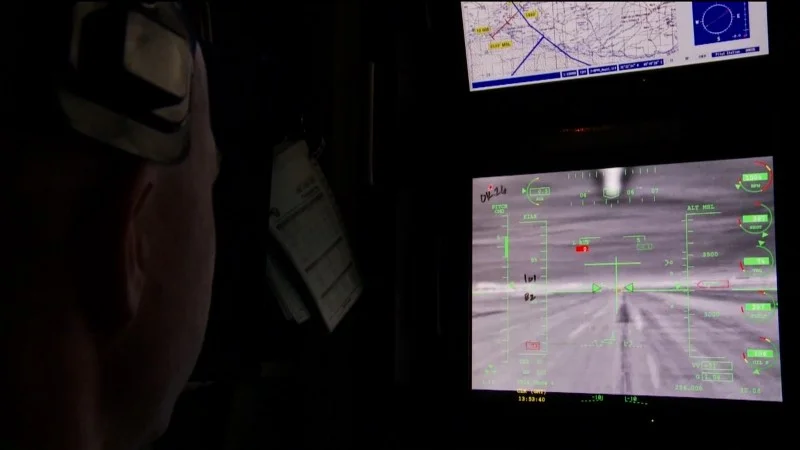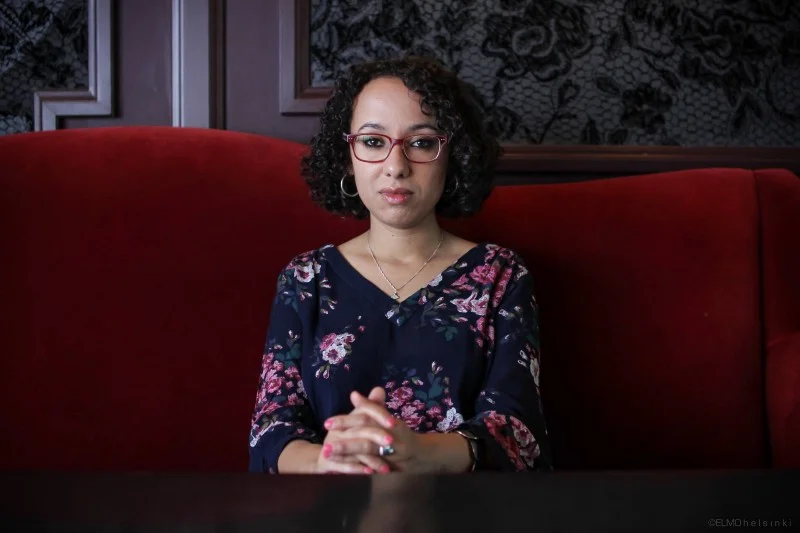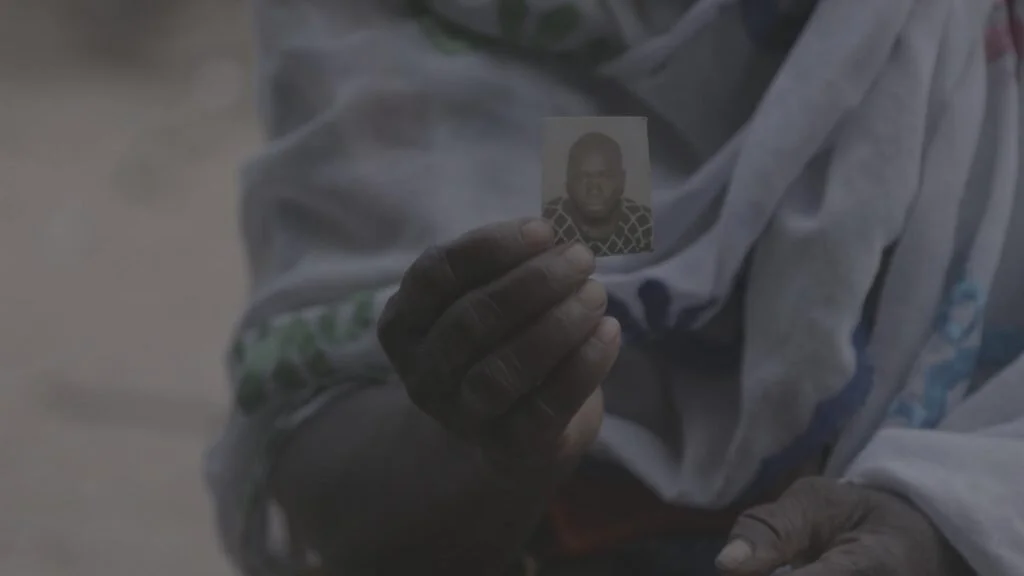‘Innocent People Died on a Regular Basis and Nobody Seemed to Care About This’
The Review of the film Drone directed by Tonje Hessen Schei, and an Interview with Producer Jonathan Borge Lie, and Yemeni Human Rights Blogger Afrah Nasser
Drone is a Norwegian documentary film that draws attention to fatal drone strikes carried out in Pakistan and Yemen. Since its release in 2014, the film has won several awards at various festivals and informed a large number of people about the attacks that kill innocent civilians on a regular basis.
Even though we are live in the age of constant connectedness and unstoppable stream of information, we might get lost and/or imprisoned in a personalised bubble, which makes it impossible for us to be informed about important and significant events happening outside our comfort zone. In other words, we tend to neglect issues that have no impact on our daily life. Unfortunately, most of the time the media also stay silent, so the only platform that might help us navigate on this information-paved path is films that dare to show us something different, something less, or even unknown.
Tonje Hessen Schei’s Drone takes us on a journey to the consciousness of a drone operator Brandon Bryant, and to the Middle East to the broken heart of hundreds of civilians who lost at least on of their family members in the drones strokes carried out in Pakistan. The Norwegian documentary is by no means that sentimental, but creates an atmosphere in which we cannot escape from the facts of reality and the emotions of the individuals being introduced in the film. The main characters are former drone operator Brandon Bryant, and human rights lawyers Shahzad Akbar and Clive Stafford Smith. Through their stories the film unfolds the history of drones, the life of drone operators who are working in a bunker in Nevada, and Pakistani civilians’ almost impossible fights for justice.
This new kind of warfare, namely fighting against terrorism while sitting in front of a screen and staying far away from the battlefield, has huge impact on people’s life in targeted places in the world. Residents of Pakistan (Waziristan) and Yemen are in constant danger. They never know when another drone strike hits their homes and ends their or a family member’s life. ‘It’s only when it’s cloudy we don’t fear the drones’, says one of the survivors in the film. In contrast to that, American President Barack Obama explains, ‘[t]hese strikes saved lives’.
Lucian Muntean Copyright @ Flimmer Film 2014. All rights reserved
Official authorities hardly comment on the air strikes, and the discourse in the media also fairly limited and vague. It can be concluded that it is a rather biased discourse in which a Western person’s life is worth more than someone’s from Pakistan. Of course, news values differ from country to country, from region to region, but in a situation that is such connected as the non-existing war on paper and the existing war in reality it is important for journalists to cover both sides of the story.
It is not so surprising that due to the lack of proper news coverage documentary film-makers are the ones who intervene. Tonje Hessen Schei and her team attempted to address this issue from a so far neglected perspective. The film’s power is definitely the series of intimate interviews done with Bryant. He was the first person who verbalised his experiences of being a drone operator. He killed more than a thousand people during the years spent in the United States Air Force. ‘Ended something I didn’t have the right to end’, he says at one point in the film.
The documentary perfectly balances between facts and emotions, between West (the USA) and East (Pakistan). It highlights the different aspects of drone warfare by interviewing politicians, social scientists, drone developers and operators, authors, human rights lawyers, Pakistani civilians, and showing footage of presidential speeches, UN hearings, etc. Tonje and her team is unquestionably doing activist and advocacy work with their film, which has won several awards in their homeland Norway, and got recognised for its achievement in expanding the discourse on drones.
Noor Behram Copyright @ Flimmer Film 2014. All rights reserved
Norway Goes Worldwide
In order to get more insight into the film-makers’ intentions, we decided to do an interview with one of the crew members. Producer Jonathan Borge Lie answered our questions regarding the origin of the story, the shooting process and the afterlife of the film.
Cinema Scandinavia: How did you find this particular story?
Jonathan Borg Lie: The starting point was when Tonje Hessen Schei, the director of the film, heard about a person who was recruited at a gaming event in the USA to become a drone operator. Tonje was working on her last film entitled Play Again, and got really interested in the topic that brought us to Pakistan.
You’re focusing on the US in the film. Are other countries armed with drones?
Israel and the US are the ones that are developing this technology, and they also train German and French forces. However, we didn’t touch upon this, we only portray the American drone operators.
How did you come across the local residents in Pakistan?
After we had heard about the drone operator, we started to do research on the topic. We became suspicious reading the headlines in news because those were quite similar and always stated the same: suspected militants killed. We decided to follow this lead, and quite soon we realised that there was a whole other world out there where civilians died. We met Shahzad Akbar (Human rights lawyer, Founder of Foundation for Fundamental Rights) and Clive Stafford Smith (lawyer, Founder of Reprieve), who are working with the victims’ family in Pakistan. The film gave them a chance to be more visible in the public eye, to inform the general public about this unjust. So through them we managed to get access to the people in Pakistan. We were grateful to them for this opportunity, but we also knew that we had a great responsibility of how we portray these individuals.
Was it difficult to win people’s trust in Pakistan?
We didn’t have to win the locals’ trust directly. We earned the lawyers’ trust, and had a local team working in Pakistan. It was a better set-up than us going there.
I assume it was not an easy job to make this film happen. What were the greatest challenges during the shooting?
It was definitely not an easy job. One of the greatest challenges was to find a drone operator who was willing to tell us about her/his experience. It took us a great amount of time to get access to a drone operator. We started in the regular way. We contacted the United States Air Force and were introduced to the Hollywood Department there. They are the link between the military and the entertainment industry. One can apply for money and various kinds of vehicles, equipment and tools there to make her/his film. Films like Top Gun and other Tom Cruise films were funded partially by them. We only wanted to talk to an actual drone operator, but they weren’t co-operative and didn’t give us access to one. We had a breakthrough when former drone operator Brandon Bryant opened up about his experiences in Der Spiegel (German weekly news magazine). He was the first operator who spoke out. We sent one person to try to find access to him. Fortunately, we managed to do that.
Did this affect the United States Air Force’s attitude towards the project?
It did. The Hollywood Department also wanted to introduce us to several drone operators. It was obvious they wanted to present their perspective as well. Suddenly, we had access to five-six drone operators, which was a huge step in our investigation.
A great variety of people — from philosophers and political scientists through politicians to drone developers — gives their opinion in the film on the drone strikes carried out in Pakistan and Yemen. How did you decide on the interviewees?
It was also our aim to talk someone from the US government. We didn’t manage to interview President Obama or someone from the CIA, but John B. Bellinger, who served as the Legal Adviser for the US Department of State and the National Security Council during the George W. Bush administration, agreed on an interview with us. He was among those who structured the legal framework for killing people with drones.
How many hours of footage did you work with?
Around 250 hours, I guess. It took us some time to go through all of it, and it’s a pity that we weren’t able to include all we found. We encountered with so many amazing stories, just listened to them with the help of an interpreter, but only about five percent of the stories made the final cut. The same happened with the interviews, we included only the twenty percent of them.
That’s a tough job! What strategy did you follow during the editing process?
We wanted to reach out to Western audiences. The difficulty was to make the decision on how many stories we can or, in fact, should show before it becomes a film that portrays too many victims. We needed to find the perfect balance to maximise the effect of the film.
Archive Footage
You had theatrical release in North America in November 2015, and since then the film have also premiered on Netflix and Al Jazeera. Please tell us about the reception of it.
It received great reviews, and the easiest way to measure the audience’s response is through the release and screenings in New York. We received lots of media coverage in the premiere week because we had screenings where Brandon and three other drone operators were present. The viewers and users more or less appreciated our approach, but, of course, they were shocked and angry with the issue discussed. The comments on Al Jazeera were also positive, and, unfortunately, I don’t have any information on Netflix, since no comments are available there.
Where else did this great reception lead you?
Bryan was a guest on Democracy Now!, which is a very progressive leftist news programme, and other drone operators were also interviewed by NBC News, after which we could gather information on the reaction of war veterans. They became upset with the fact that drone operators were depicted as victims. They didn’t agree with this, since these guys are ‘only’ sitting in Las Vegas and aren’t really on the battlefield. We could see this attitude a lot.
Have you also screened the film in Pakistan or in the Middle East?
It’s a disgrace that it hasn’t been screened in Pakistan. The market is broken there, and there is no one to release the film. They screen it at universities but that is nothing. Having said that, I think the most important market for us is the West because something should happen concerning this issue.
Anna Myking Copyright @ Flimmer Film 2014. All rights reserved
Did you achieve with the film what you had wanted?
We achieved more than we had hoped for. We didn’t know it was going to be a success. We realised only after our first screening that it was actually working. We were able to contribute to the prevailing cultural narrative that is we successfully reached out to the media. We draw attention to the issues of accountability and transparency, and Brandon also had a hearing at the UN, which was also working on projects related to these issues. It was important for us because innocent people died on a regular basis and nobody seemed to care about this. The only time the drone strikes received more coverage when Western people died. For instance, last year American and Italian hostages were killed in a drone strike carried out in Pakistan. Officials addressed that case, and the White House ordered a review. This is a shame; this issue should be addressed whether the victims are from Western countries or from Pakistan and Yemen.
How much do people actually know about this issue in Norway/Scandinavia?
When we started this project, one could hardly find any kind of information about the subject. We aimed at shaping the narrative prevailing in the world, and I think we succeeded in that to a certain extent. People tend to consider drones as toys, cameras, and they don’t really think that drones can be harmful. We wanted to show the dark side of them. We still travel around Norway and show the film to students to also share this side of the narrative with them. I often ask them whether they have heard about this, and it still surprises me how little they know about this issue. They are literally in shock after seeing the film. They express both anger and sorrow, which means they are affected by the story. You definitely need to have that emotional engagement to be able to relate to those people. This doesn’t happen when you’re reading the headline that 10 Pakistanis been killed.
Are you planning to make another film related to this topic?
No, we are done with this topic, we’re moving forward. Now we have a new company called Volt Film, and we are developing our new film entitled iHUMAN, which is about artificial intelligence.
Yemeni human rights blogger Afrah Nasser | Photo by Elmeri Kauko
Meanwhile in Yemen
We also interviewed Yemeni human rights blogger Afrah Nasser to ask her about the situation is Yemen. The interview had been conducted right before air strikes hit Sanaa, the Yemeni capital, where more than 140 people were killed.
I’ve just interviewed the producer of the film entitled Drone that is about the US drone strikes carried out in Pakistan. He mentioned that they specifically wanted to target Western countries as this is issue is hardly discussed there. What do you think one can do to raise awareness about this issue in the West?
Everything and anything! We need raising awareness, advocacy and strategies about the drone issue on all levels in Western societies — on the governmental and political level, on the social and cultural level and even on economic level. Human rights groups that focus on naming and shaming the parties committing atrocities with drone strikes are doing tough job in confronting governments in Washington D.C., London and other places. We need more of such human rights groups. Media have a great role in raising political awareness among the public, the members of which must be well-informed about what their own government is doing with their tax money, namely committing massive human rights abuses in countries where drone strikes are the main strategy to combat terrorism.
Do you think films are the right medium to do that?
It’s not the right or wrong medium, but films are one of many effective ways to help the public relate to victims of drone strikes such as children, women and non-combatant civilians. Films have the power to make the audience see the issue in a more humane way.
Please tell us about how much the US drone strikes have influenced the public mood in Yemen.
To a great negative extent! The longer the drone strikes operation lasts in Yemen, the more hard sentiment you see among Yemenis towards the US. Almost all Yemenis understand that the US-led drone strikes in Yemen are nothing but unjust and criminal act. Therefore, the Yemeni public are dissatisfied with anything about the US in terms of Yemeni politics. For instance, even in the ongoing war, Yemenis see that the US is also doing injustice with its US-made cluster bomb being used in the Saudi-led coalition air strikes in Yemen. In both acts, in the US-drone strikes or in the US’s role in the ongoing war, the US is making a great mistake in its strategy. If the US wants to free Yemen from terrorism and violence, it’s absolutely counterproductive strategy. Regardless of what the US wants for Yemen, Yemenis think the US is the terrorist one — this is especially true concerning the victims’ family members.
Film details
Drone / Directed by Tonje Hessen Schei / Produced by Lars Løge for Flimmer Film / Written by Tonje Hessen Schei Local release date 10th April 2014
Featured image
Steven Moore Copyright @ Flimmer Film 2014. All rights reserved
Originally published at cinemascandinavia.com.
